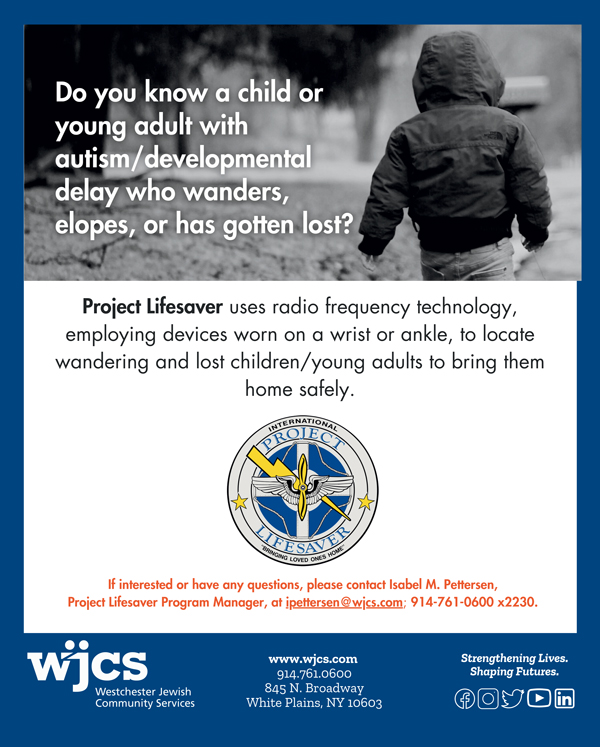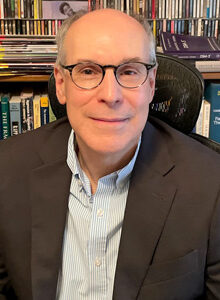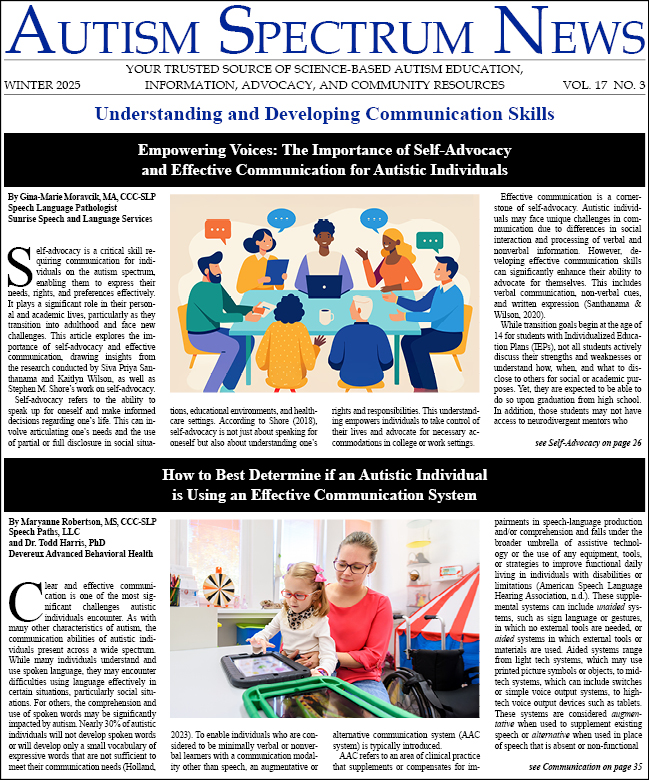Providing comprehensive and meaningful therapeutic services for autistic adult clients in a community mental health center requires offering a range of therapeutic groups within which a client can work to reach their potential in a way that might not be possible via individual therapy sessions alone.

For many of the autistic clients that we work with at Westchester Jewish Community Services (WJCS) in Westchester County, NY, there is a limitation in having them work exclusively in a 1:1 mode. A core challenge for our clients is the habilitation and application of skills related to socialization, as well as navigating the complexities of interpersonal relationships across settings in their daily lives. In a group setting, whether structured or unstructured, there is an opportunity for those issues to emerge and become part of the work.
One client, for example, in a virtual, structured social skills group for young adults, consistently asked probing and personal questions of his peers. Although the questions were in some way related to the curriculum, the fact that the client was getting too personal ultimately became off-putting to his peers. He was surprised when his peers began to respond to him curtly. He wanted to improve his relationships with his peers in the group, and we worked on his concentrating on talking about himself and asking one general question that was not too personal. We identified the acronym TAY (Talk About Yourself). As the facilitator, I was able to send him a chat message stating “TAY,” which he was able to take as a prompt and, thereby, modify his behavior in the here and now. He also was able to ask his peers if a question was too personal before “officially” asking it. We all worked together to identify what was and was not too personal to ask. In this way, his peers also benefitted from considering what could be asked in a group forum and what was inappropriate. In a breakthrough moment in the group, he stated: “I know this question is not too personal,” and then proceeded to present a general, relevant, and appropriate question for us all to consider.
One of the less structured social skills groups we offer for ASD clients is a weekly in-person lunch group. The discussions in the group focus on issues related to family dynamics, vocational training, and reactions to political events. We delve into these topics while having a meal together. One of the participants has a moderate level of misophonia, and he told me, in an individual session after having tried the group, that he would not be able to tolerate the sensory input, particularly because he perceived that some of his peers were “sloppy eaters.” This group usually begins with a check-in, and he agreed to bring this up at the beginning of the next group meeting with my support and guidance to see if this approach would make a difference. We practiced first how he could politely and directly point out to a peer when he was uncomfortable with the way that they were chewing. His peers were kind and responsive, and they worked to accommodate him. As a result, he soon felt validated and recognized, which allowed him to tolerate an improved, albeit not perfect, sensory environment.
Another limitation in working exclusively in a 1:1 format is that clients do not experience the force and power of affirmation. This is achieved by being validated by a group of like-minded people whom the individual has come to like and respect. We know that, as professionals, we can tell students, children, clients, or friends a pearl of wisdom that we are confident could be helpful, and we feel either ignored or minimized when they do not see us as sages. However, when a peer says the same exact thing, it seems to have a greater impact, as it is often experienced with less defense.
Sometimes, ASD clients struggle with activation, and the next step is there and ready to be seized, but inertia prevails and the individual struggles to work through. I have observed clients in a group setting activate each other in a way that I had not been able to via individual sessions. For example, I had been urging a client to consider a volunteer position at a local not-for-profit organization, but he was not scheduling the required intake appointment. Yet, a conversation in the group on the benefits of volunteering in the community, especially in the context of preparing for competitive paid employment, was enough to encourage him to make the call. He continued to use the group as a place to process his experience as he began his volunteering in that organization.
Sometimes, it can be surprising just how isolated some of the adult ASD clients are. Their only interaction with other people during the week is the group they attend. In most cases, it is our therapeutic goal to change that. However, without even considering the skill-building opportunities in the group, leaving the house and attending a group with peers is, itself, of enormous therapeutic value. Conversely, one client who does have social connections at school and in the community explained to me that one of the positive aspects of attending a social group is that there are no groups in which he participates formally or informally that are comprised exclusively of neurodivergent peers. Attending our group provides a sense of community and safety that does not characterize his other interactions. From the most isolated to those who might already exist successfully in a myriad of groups, a group experience with neurodivergent peers has value (Chan, Doran & Galobardi, 2002).
In our more structured groups, skills that relate to coping and emotional regulation are directly presented, practiced, and applied. A group appraisal of these skills and how they can be implemented provides an opportunity for problem-solving that becomes richer than individual therapy as multiple unique perspectives and experiences can be considered. Our department has just begun our first DBT group exclusively for a neurodivergent population, and in just several sessions, the participants are working together to think about how interpersonal effectiveness skills could enhance their relationships both in their lives as well as within the group itself.
I am working with several young adult ASD clients who compare themselves to what their perception of the norm is in terms of social, vocational, and/or educational achievements and, as a result, are self-critical and vulnerable to depressive ideation. Another advantage of having these clients participate in a group forum is that the idea of moving at one’s own pace is legitimized. There is social reinforcement and validation for moving forward in a way that is reasonable for a client. Clients have also effectively used these discussion opportunities to define for themselves what moving forward means to them and how to communicate this to significant people in their lives. This has been an essential aspect of providing participants with a sense of self-efficacy (Lorna, Rajendran & Stewart, 2023).
Finally, another benefit of facilitating social groups with ASD clients is that the relationships that form can potentially become social connections that the clients have beyond the parameters of the group. Unlike psychodynamically-oriented process groups, clients can be encouraged and supported to communicate outside of the group. As the facilitator of these groups, I purposefully sat two clients next to each other when I perceived that there were common interests or I felt that they would like each other as people. I have also casually prompted clients to take the next step to actualizing social plans with each other. For example, a client was excited to find that a peer in a less structured group had the same interest in movies that he has, and there was a vague exclamation of “we should go together” followed by silence. Being present and sensing that the connection was genuine, I was able to casually ask, “How will you guys get in touch with each other in order to set that up?” which then prompted appropriate follow-up.
For me, as the director of a department whose mission is to promote the mental health of ASD clients, it is essential that group-based interventions be a part of our therapeutic offerings.
Kenneth Mann, PsyD, is Director of WJCS Outpatient Services for People with Developmental Disabilities.
References
Chan, Doran & Galobardi (2022). Beyond Friendship: The Spectrum of Social Participation of Autistic Adults. Journal of Autism and Developmental Disorders, 53: 424-437
Lorna, Rajendran & Stewart (2023). Social Self-Efficacy and Mental Well-Being in Autistic Adults: Exploring the Role of Social Identity. National Autistic Society, Volume 28, Issue 5.





